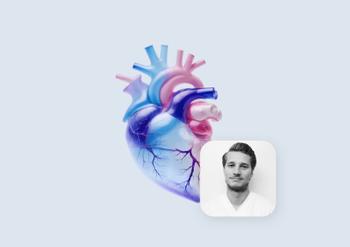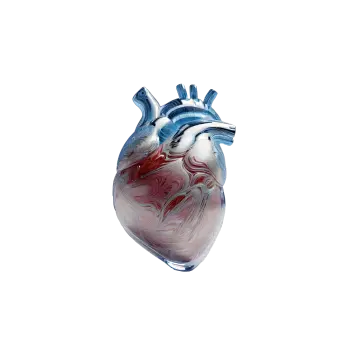What is high cholesterol?
Cholesterol is a fatty substance that is necessary to build cells in the body. Normally, cholesterol is produced in the liver, but it can also be ingested through the diet. The problem occurs when the level of cholesterol in the blood becomes too high. High cholesterol can be dangerous because it can lead to the accumulation of fat on the walls of blood vessels, which in turn can cause blockages. In the worst case, these blockages can lead to serious heart problems such as a heart attack or stroke.
How do I find out my cholesterol?
Knowing your cholesterol levels is an important part of managing your cardiovascular health. The primary method of finding out your cholesterol is through a venous blood test. This test measures the levels of different types of cholesterol in your blood and gives a clear picture of your lipid profile.
To complete a cholesterol test, you will visit a healthcare provider. During the test, a nurse will take a blood sample from a vein, usually from the arm. The blood sample is then sent to a laboratory for analysis.
Cholesterol test results usually include the levels of total cholesterol, low density lipoprotein (LDL) or "bad" cholesterol , high density lipoprotein (HDL) or "good" cholesterol) and triglycerides. These values provide an overview of your cholesterol profile and are used to assess your cholesterol profile.
Common causes of high cholesterol
There are several factors that can contribute to the development of high cholesterol. However, one of the main reasons is an unhealthy lifestyle. Unfortunately, we neglect our diet too much and eat a diet rich in saturated fats and trans fats, which results in elevated cholesterol levels. Foods that contain high levels of these fats include red meat, butter, cheese, cream, cookies and chips. In combination with smoking and physical inactivity, the development of high cholesterol is also accelerated.
Factors such as age, gender and genetics also have an impact on your cholesterol levels. Postmenopausal women and men over 45 are more likely to have high levels of cholesterol. Some people may also have inherited blood lipid disorders, such as hereditary hypercholesterolemia, also known as familial hypercholesterolemia (FH), which can lead to high cholesterol.
Symptoms of too high cholesterol levels
It is important to note that high cholesterol usually does not cause any specific symptoms. This is why it is often called a "silent" disease. It may be possible to live with high cholesterol for a long time without noticing any obvious signs. That's why it's important to check your cholesterol levels..
Diagnosis of high cholesterol
The diagnosis of high cholesterol is usually based on a blood test. The blood test measures the levels of different forms of cholesterol, including the bad cholesterol (LDL) and the good cholesterol (HDL). This can be carried out in connection with a regular health check or if you have other risk factors for cardiovascular disease and specifically want to find out your cholesterol levels.
What treatments are there?
Treatment for high cholesterol can vary depending on individual factors and the severity of the condition. In most cases, lifestyle changes are often recommended as the first line of treatment over time. Eating a healthy diet rich in fruit and low in saturated and trans fats can help lower cholesterol levels. Regular physical activity and weight control can also be important factors in improving your health.
In some cases, medication may be needed to lower cholesterol levels. Statins are a common type of drug used to reduce LDL cholesterol levels and sometimes increase HDL cholesterol levels. These drugs may be helpful, especially if you have other risk factors for cardiovascular disease or if your cholesterol levels are severely elevated.
It is important to remember that the treatment of high cholesterol is usually a long-term process. It may require a combination of lifestyle changes and sometimes medication to achieve and maintain healthy cholesterol levels. Therefore, it is important to continue to follow up with your doctor and follow their recommendations.
This is how you can prevent high cholesterol levels
Preventive measures are important to avoid high cholesterol and prevent cardiovascular diseases. Living a healthy lifestyle is a key factor in maintaining optimal cholesterol levels.
Here are some tips for preventing high cholesterol:
- Eat a healthy diet: Avoid saturated and trans fats, and instead choose foods rich in fiber and omega-3 fatty acids. Fruit, vegetables, whole grains and lean protein are good options.
- Exercise regularly: Regular physical activity can help increase HDL cholesterol levels and lower LDL cholesterol levels.
- Avoid smoking: Smoking can contribute to high cholesterol levels and increase the risk of cardiovascular disease.
- Maintain a healthy weight: Overweight and obesity can negatively affect your cholesterol levels. Maintaining a healthy weight is important for preventing high cholesterol.
- Avoid excessive alcohol intake: Alcohol can increase your cholesterol levels and negatively affect your overall health. Moderate alcohol intake is preferred.
By following these preventive measures, you can reduce your risk of developing high cholesterol and improve your cardiovascular health.























